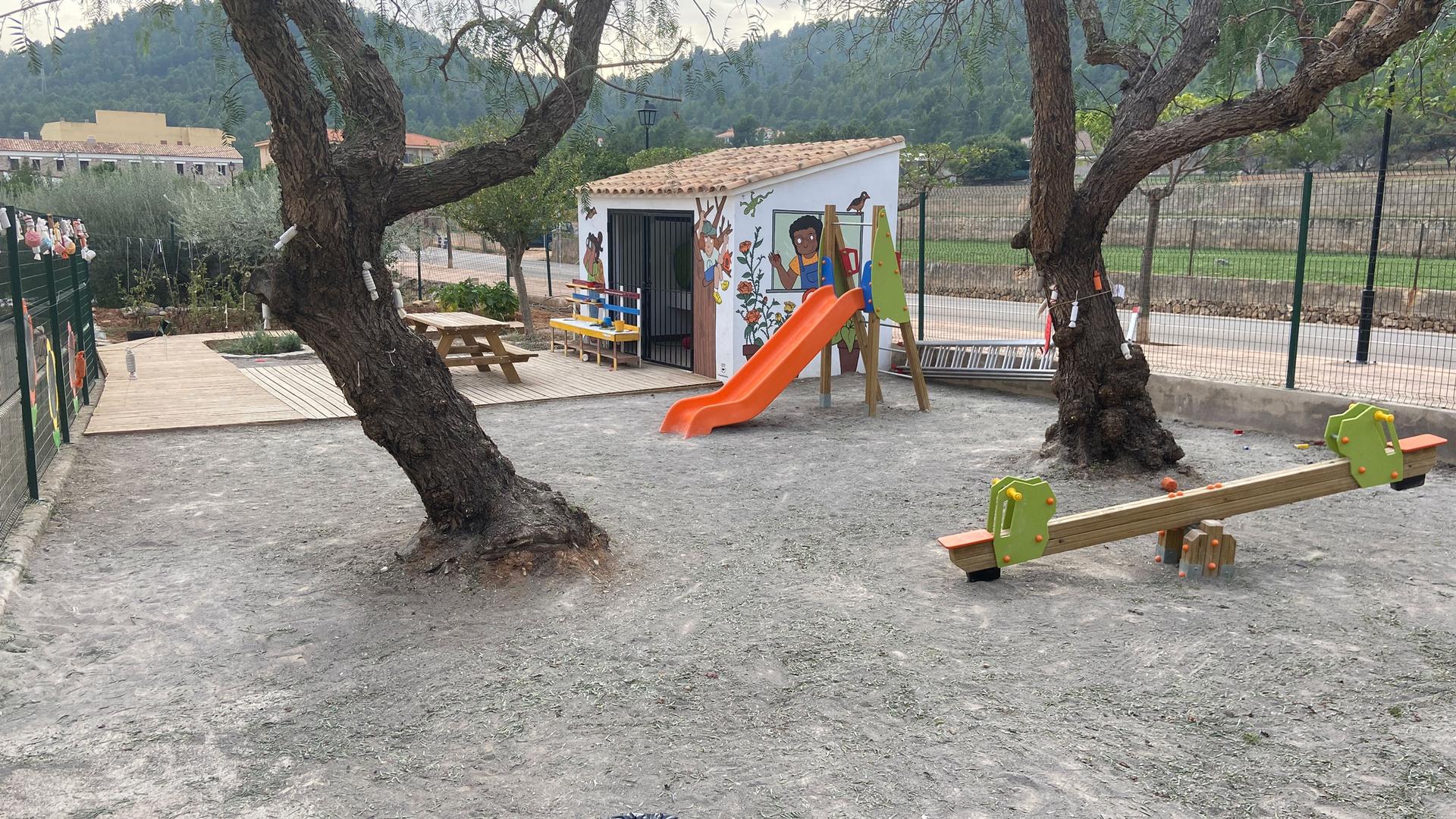Argelita is an idyllic, white-washed mountain village in northeast Spain, with an old public washhouse, a shaded river for swimming, a bar, a medieval church and sheep grazing on the nearby hills. But one thing that’s been missing for a long time is children.
Back in the ‘70s, the village school closed down because there just were not enough children. But now, after 47 years, children finally have a place to learn in town, at the village’s new school.
“I like it here more than at my old school,” fifth-grader Lola Brun said on a recent day during recess. “There, the kids would fight a lot.”
In Spain, a decadeslong exodus from the countryside to the cities has left hundreds of villages empty, or nearly so. Castellón, a region in Spain’s northeast, knows this well. It now has one of the lowest population densities in Europe. But the tiny village of Argelita has managed to reverse the trend.
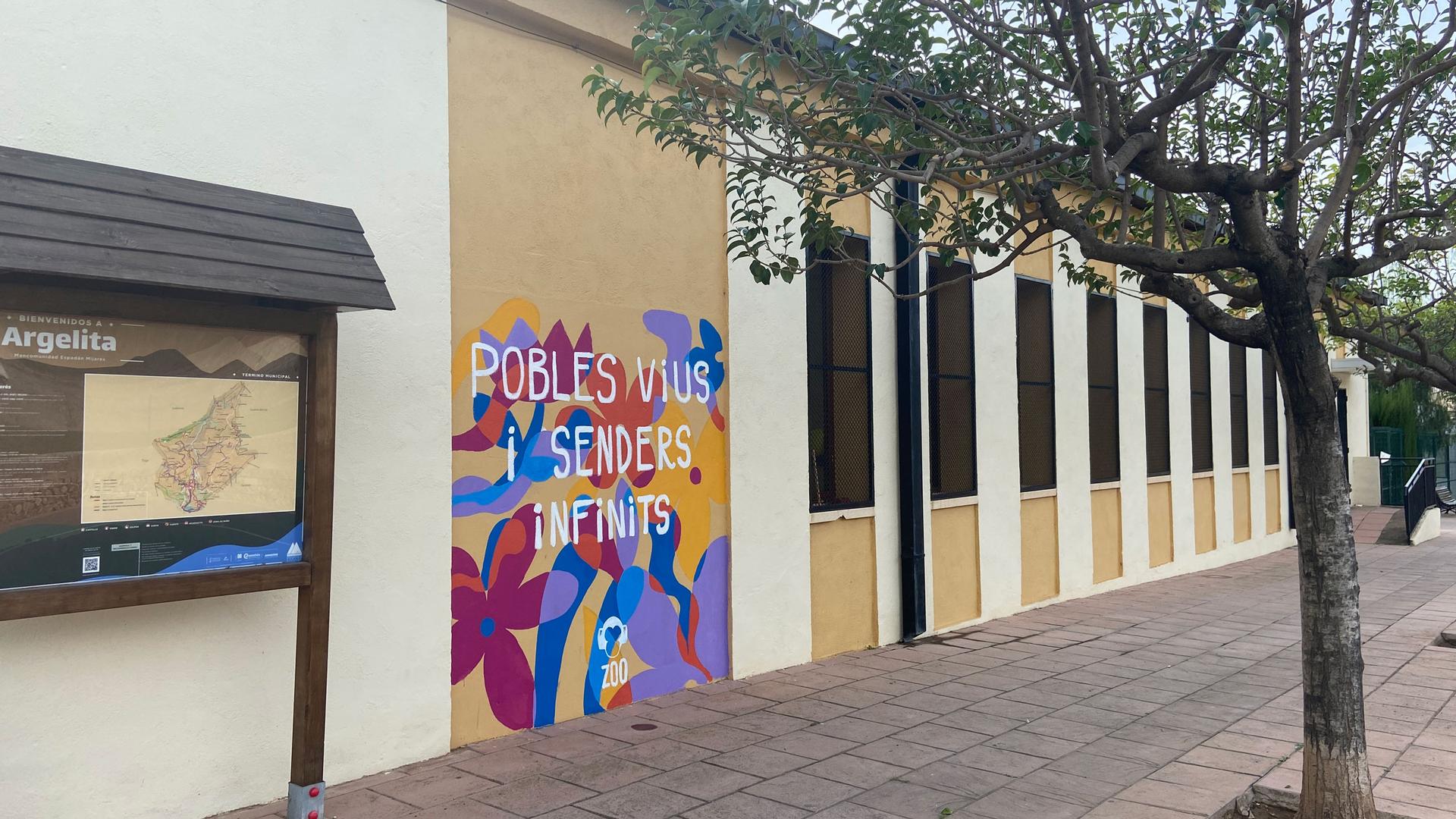
Brun is one of 24 students at the new school. Her family moved to Argelita last year from a bigger town near the coast. Her mom is one of the teachers.
“At my old school we were in class all day,” Brun said “Here we have more free time. We can go outside on the playground.”
Just over a year ago, Argelita, with a population of about 100 and shrinking, was a much quieter place. The school has changed that. But the plan to revive the aging village started even earlier.
“We weren’t looking for a strategy to stop the exodus of residents,” said Amadeu Llach, Argelita’s lieutenant mayor. “We were already depopulated,” he said. “We needed a plan to bring families back.”
That is, families with kids. But Llach said the town knew that a school building alone wasn’t going to produce miracles. First, Argelita brought back some other basics like a supermarket, and then a pharmacy.
“We almost never used to sell diapers or formula,” said assistant pharmacist Vicky Jimenez, on a tour of her tiny storefront. “Now we’ve got pacifiers,” she said, “and all the little things babies need.”
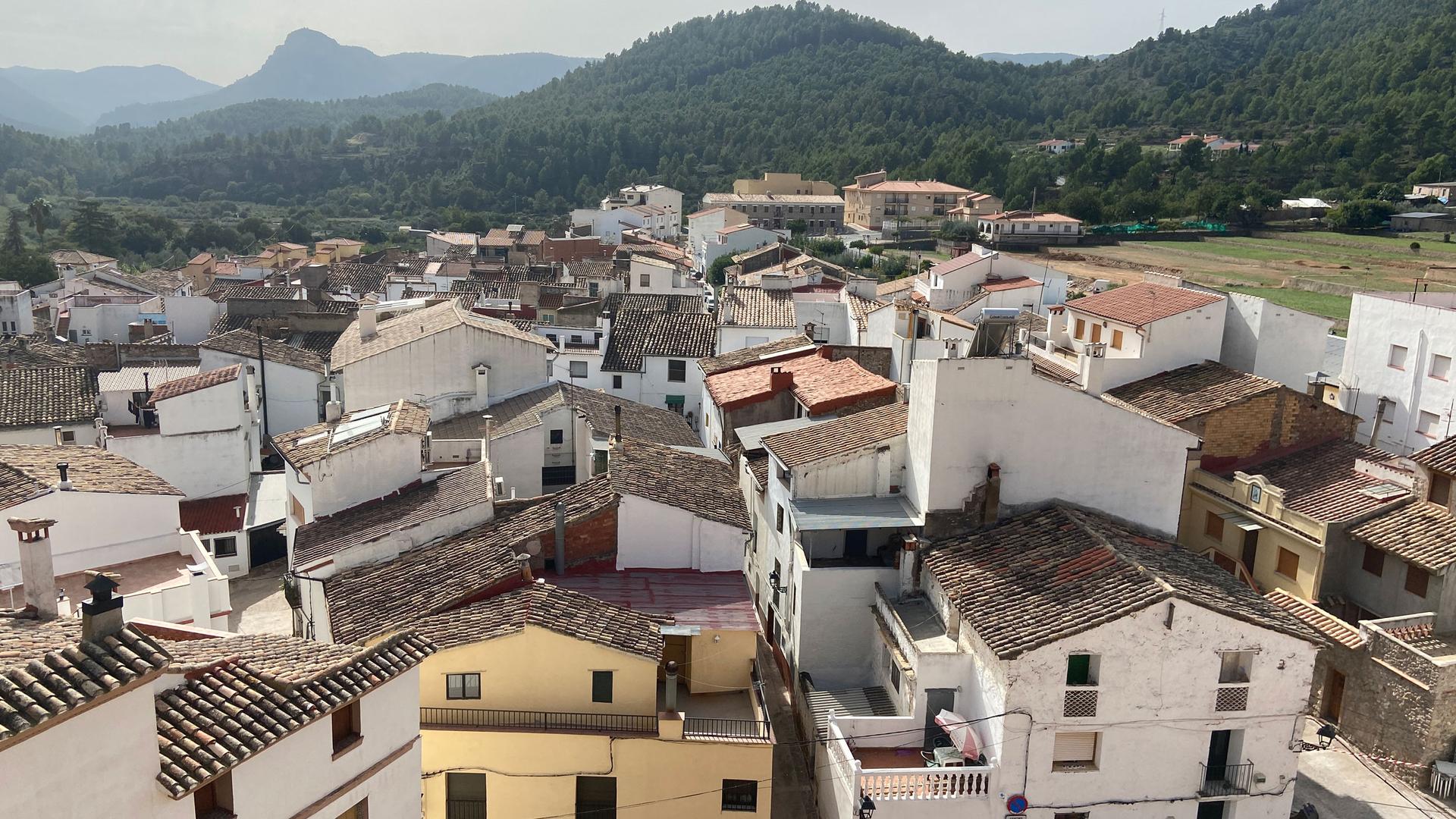
Next door, there’s another new, multiuse space. Depending on the day, residents can pop in for a haircut, or see the foot doctor or visiting physical therapist. All of this was put in place before the school opened. Only then did the town go after families.
And the plan seems to be working.
On a recent morning in the tiny town square, a young woman named Ayona Halili stopped for a coffee. “I moved to Argelita with my husband and three kids,” she said.
The Halilis are refugees from Albania. A couple of years back, Argelita put out a public call for immigrant families: “Move here with your kids, we’ll give you free housing and a job.”
Soon, Argelita was welcoming a Kurdish family from Syria, a Colombian couple with two kids and the Halilis. The influx pushed the school-age population to 11, past the legal minimum threshold for a public school.
“The town’s great,” Halilii said. “It’s so calm. It’s good for our kids. They really like it.”
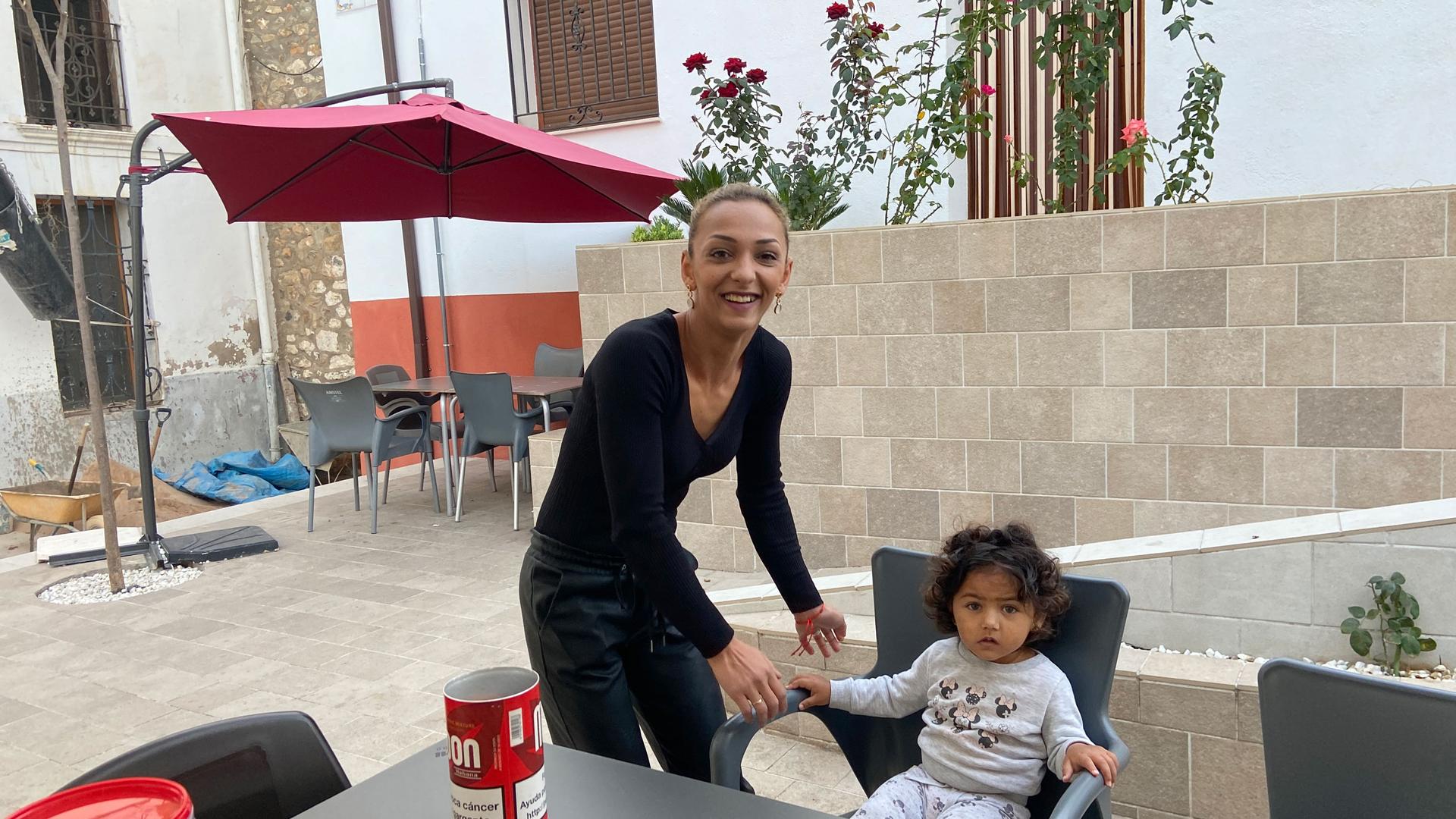
Her husband was given a town job, maintaining the local forest. Their oldest son, Yegor, age 11, studies in the new school.
“I love that I can walk to school,” he said. “It’s like 10 or 15 steps from my home. It’s a small town.”
Yegor did complain about homework, unsurprisingly. But he smiled as he did so. He seemed like a happy kid.
In fact, the whole town seems happy about the new school, and the new families who’ve made it possible, local baker Aitor Balfagón said.
“It’s brought us more life to the village,” he added. “There are kids playing in the streets. Before the school, after dinner, there was no action in the streets. Everyone just stayed home.”
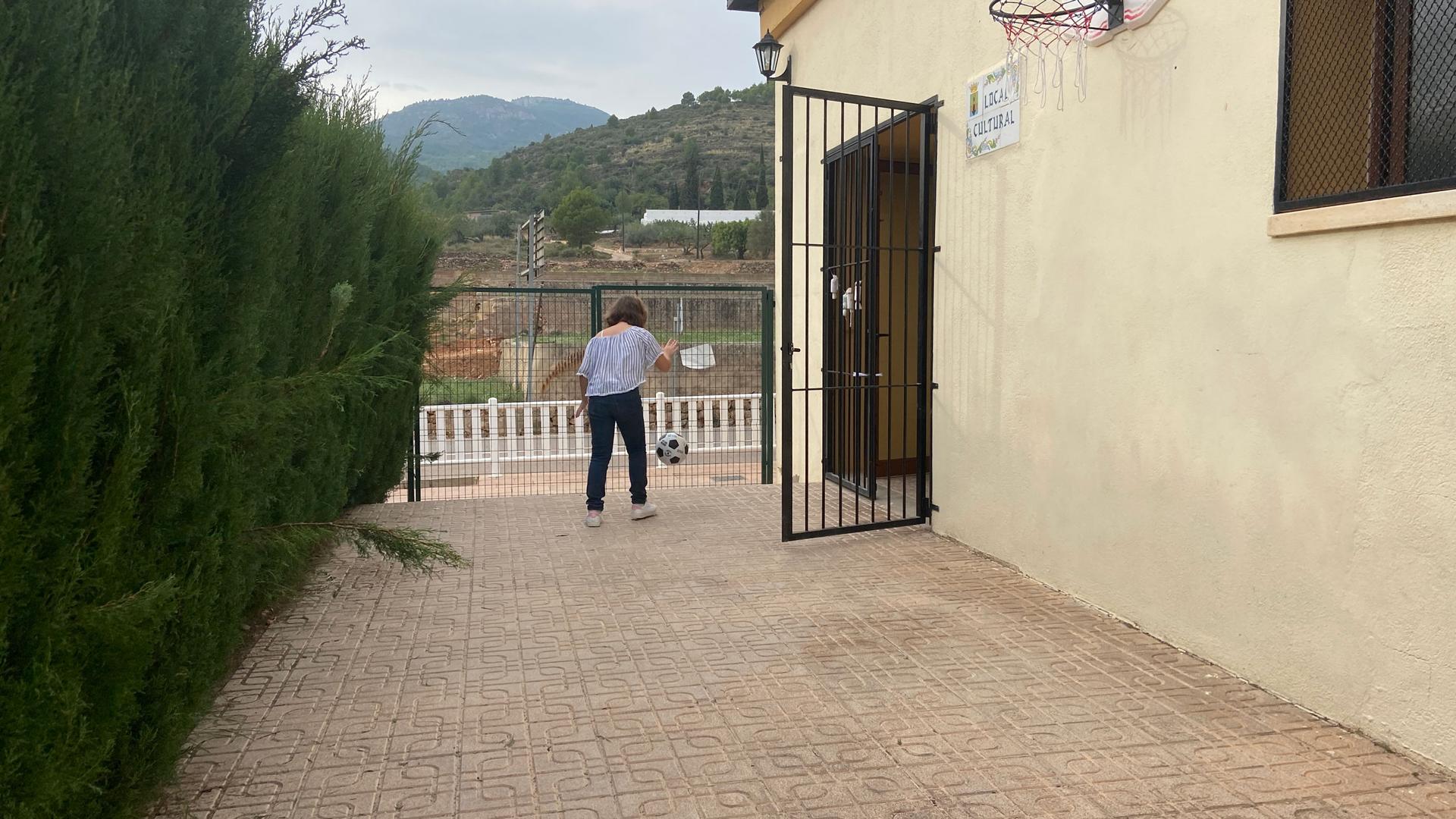
Balfagón also happens to be the town’s mayor. In between baking baguettes, he’s managed to get some new housing approved. Because now, he said, there’s a waiting list of families hoping to move here.
